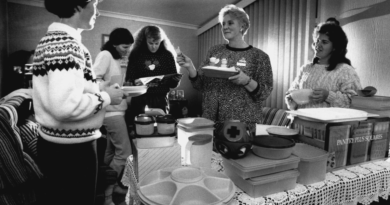Amazon will now pay Elon Musk’s SpaceX to get its Project Kuiper satellites into space—and compete against his Starlink service
Amazon founder Jeff Bezos and SpaceX CEO Elon Musk have a long history of trolling each other, particularly about the space business. According to an investor lawsuit filed a few months ago, the billionaire rivalry played a role in Amazon not choosing Musk’s SpaceX to launch satellites for its Project Kuiper, which will compete against the Starlink broadband internet service provided by SpaceX.
The lawsuit claimed that Amazon leadership “excluded the most obvious and affordable launch provider, SpaceX, from its procurement process because of Bezos’ personal rivalry with Musk,” thereby breaching “basic fiduciary responsibilities.” Amazon said the lawsuit’s claims were “completely without merit.”
Yesterday, Amazon announced that it’s signed a contract with SpaceX for three launches of Project Kuiper satellites on SpaceX’s Falcon 9 rocket. It stated: “Project Kuiper satellites were designed from the start to accommodate multiple launch providers and vehicles, allowing us to reduce schedule risk and move faster in our mission to connect unserved and underserved communities around the world.”
In April last year, Amazon said it had secured up to 83 launches for more than 3,000 satellites from three commercial space companies: Arianespace, Blue Origin, and United Launch Alliance (ULA). Blue Origin, of course, was founded by Bezos, who currently serves Amazon’s executive chairman, having resigned as CEO in 2021.
In October, Amazon launched its first two satellites for Project Kuiper aboard an UAL Atlas V rocket, which took off from Florida. The company’s goal is to put more than 3,300 satellites into low Earth orbit. Amazon needs to launch half of its Kuiper constellation by 2026 in order to be compliant with its license from the Federal Communications Commission.
The satellites were the only payload on the Atlas V yet represented just a fraction of its payload capacity. “It’s like using a tractor-trailer to transport a couple of suitcases,” Brian Weeden, an executive at Secure World Foundation, a space sustainability nonprofit, told Bloomberg.
The SpaceX launches carrying Project Kuiper payload are targeted to lift off beginning in mid-2025, said Amazon, which expects to have enough satellites deployed in the second half of next year to begin early customer pilots.
Starlink has a big head start, however, and the service is expected to represent the majority of SpaceX’s revenue at some point next year, according to Bloomberg. Musk has said Starlink will eventually do a spin-off IPO, though not until predictions about its cash flow can be made “reasonably well.”
Eventually Starlink and Project Kuiper will be competing for customers in remote or otherwise cut-off places around the globe. The rivalry will help narrow the digital divide, with billions of people on the planet still lacking internet access.
But don’t expect Musk and Bezos to stop ribbing each other, as Musk did in a November 2021 tweet referencing Judge Dredd, a dystopian sci-fi film. It followed Blue Origin losing a legal fight over NASA awarding a multibillion-dollar moon lander contract to SpaceX. “You have been judged,” read the post.



